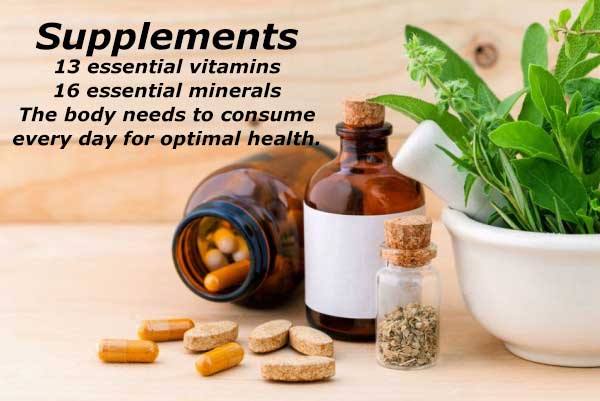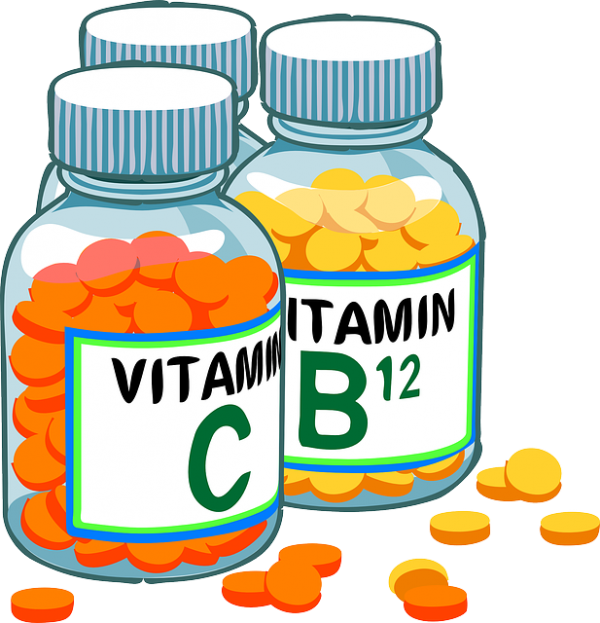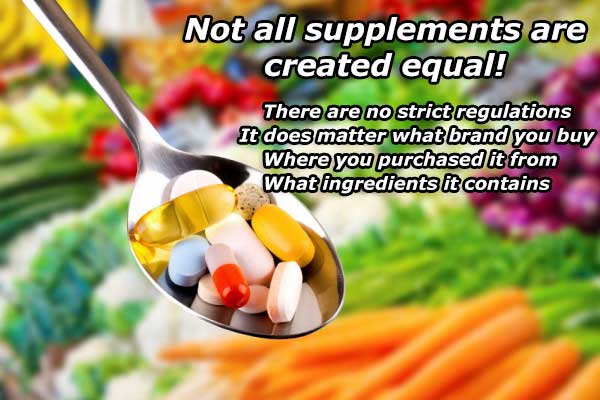Supplements
Nutritional supplements include vitamins, minerals, herbs, meal supplements, sports nutrition products, natural food supplements, and other related products.
These have the potential to help us better live with chronic pain.

Dietary supplements include ingredients such as vitamins, minerals, herbs, amino acids, and enzymes (FDA, 2017).
The benefits of supplements for pain are many actually work to heal the body compared to prescription medicines, and the side effects of supplements are usually less common and less severe.
 Dietary supplements are marketed in forms such as tablets, capsules, softgels, gelcaps, powders, and liquids (FDA, 2017). The word “supplement” means to add to something else in order to improve it or complete it. This is a perfect definition for what the right dietary supplements can do for a person’s body.
Dietary supplements are marketed in forms such as tablets, capsules, softgels, gelcaps, powders, and liquids (FDA, 2017). The word “supplement” means to add to something else in order to improve it or complete it. This is a perfect definition for what the right dietary supplements can do for a person’s body.
There are two major reasons for taking supplements, preventing health problems from occurring and reversing problems that have occurred. There are supplements people take to receive essential vitamins and minerals in order to get regular nutrients to stay healthy. Then, there are supplements for helping the body to heal itself in order to reduce and possibly reverse diseases.
Definitions for Supplement Ingredients
 Minerals are inorganic elements that occur naturally. Examples are calcium and magnesium which are essential to a person’s health. The body doesn’t produce them, so they need to be consumed through food or as supplements. Minerals play important roles in maintaining blood pressure, fluid & electrolyte balance, and bone health; making new cells; delivering oxygen to cells; and contributing to normal muscle and nerve functioning (Hemophilia Federation of America, 2010).
Minerals are inorganic elements that occur naturally. Examples are calcium and magnesium which are essential to a person’s health. The body doesn’t produce them, so they need to be consumed through food or as supplements. Minerals play important roles in maintaining blood pressure, fluid & electrolyte balance, and bone health; making new cells; delivering oxygen to cells; and contributing to normal muscle and nerve functioning (Hemophilia Federation of America, 2010).Hemophilia Federation of America (HFA)/Essential Nutrients: Vitamins & Minerals. (2010, November 10). Retrieved from: http://www.hemophiliafed.org/news-stories/2010/11/essential-nutrients-vitamins-minerals/).
Lakin, Derek. (2017, May 3). highya/History of Dietary Supplements: When Did They Start & How Are They Regulated. Retrieved from: https://www.highya.com/articles-guides/history-of-dietary-supplements-when-did-they-start-and-how-are-they-regulated
FDA U.S. FOOD & DRUG ADMINISTRATION/Dietary Supplements: What You Need to Know. (2017, November 29). Retrieved from: https://www.fda.gov/food/resourcesforyou/consumers/ucm109760.htm
MEDICINE HUNTER/What Are Herbs? Retrieved from:
Deficiency in Essential Vitamins or Minerals
 An example of this is many people don’t consume enough magnesium which can cause diabetes, poor absorption, chronic diarrhea, weak bones, or celiac disease. One study suggests that 75% of people don’t meet their recommended intake (healthline, 2017). So being deficient in a necessary nutrient (vitamin or mineral) could be a part of the reason for chronic pain or a mental health issue. Therefore, having the proper supplements may help eliminate symptoms of an illness.
An example of this is many people don’t consume enough magnesium which can cause diabetes, poor absorption, chronic diarrhea, weak bones, or celiac disease. One study suggests that 75% of people don’t meet their recommended intake (healthline, 2017). So being deficient in a necessary nutrient (vitamin or mineral) could be a part of the reason for chronic pain or a mental health issue. Therefore, having the proper supplements may help eliminate symptoms of an illness.
Supplementation to Help Reverse Disease
The other way supplements can be helpful, is your body may need vitamins or minerals beyond the essential ones as a way of helping the body reverse the damage that has been done. For example, if an organ in your body like the liver or thyroid is not working properly and efficiently, supplementation may help with that.
Functional medicine doctors like naturopaths have extensively studied what herbs, minerals and so on, to use for different issues within the body. Naturopaths search for the root cause of an illness whether it is an organ not functioning right, toxins in the body, nutritional deficiencies, nerve tissue damage, or something else. They then address those problems often with supplementation, diet changes, and other healthy habits. They believe in the body’s ability to heal itself with the right help removing problems and interferences. Some holistic practitioners use Muscle Testing as a way of identifying specifically what supplements a person’s body needs to help with the healing process. Ayurveda medicine which originated in India, also uses herbs to help with reversing diseases and various chronic illnesses.
Arnarson, Atli. (2017, December 15). Healthline/7 Signs and Symptoms of Magnesium Deficiency. Retrieved from: https://www.healthline.com/nutrition/magnesium-deficiency-symptoms#section5
 Vitamins and minerals do not provide energy (calories), but they help to release energy from carbohydrate, protein, and fat (HFA, 2010).
Vitamins and minerals do not provide energy (calories), but they help to release energy from carbohydrate, protein, and fat (HFA, 2010).
Essential Minerals: calcium, copper, chloride, chromium, fluoride, iodine, iron, magnesium, manganese, molybdenum, phosphorus, potassium, selenium, sodium, sulfur, and zinc.
Essential Vitamins: Vitamins A, C, D, E, K, B1 (thiamine), B2 (riboflavin), B3 (niacin), B5 (pantothenic acid), B6, B12 (cyanocobalamin), and Folate (folic acid and B9).
To understand the function of each of these vitamins in the body view: Vitamins on Medline Plus (Trusted Health Information for You)
Hemophilia Federation of America (HFA)/Essential Nutrients: Vitamins & Minerals. (2010, November 10). Retrieved from: http://www.hemophiliafed.org/news-stories/2010/11/essential-nutrients-vitamins-minerals/).
NIH MedlinePlus/Vitamins. (2018, December 3). Retrieved from:
Side Effects
Many supplements contain active ingredients that have strong biological effects in the body (FDA, 2017). So they can certainly be unsafe or harmful to your health in certain situations.
FDA’s Role
 FDA is not authorized to review dietary supplement products for safety and effectiveness before they are marketed (FDA, 2017). The FDA only tests 1% of the 65,000 dietary supplements that are on the market (Parsley Health). The regulations are not even close to as strict as regulations for prescription and over-the-counter drugs. It is required that the FDA be notified of any new ingredients manufacturers add to their products before marketing them. But, the FDA won’t approve the product for effectiveness, they will just check the safety.
FDA is not authorized to review dietary supplement products for safety and effectiveness before they are marketed (FDA, 2017). The FDA only tests 1% of the 65,000 dietary supplements that are on the market (Parsley Health). The regulations are not even close to as strict as regulations for prescription and over-the-counter drugs. It is required that the FDA be notified of any new ingredients manufacturers add to their products before marketing them. But, the FDA won’t approve the product for effectiveness, they will just check the safety.
It is the manufacturers responsibility to produce quality products that do not contain contaminants or impurities and are labeled properly with no misleading or false information, known as current Good Manufacturing Practice (cBMP). Although, the FDA will step in and take products off the market if they have false or misleading claims, or end up being unsafe. When a person has an adverse reaction to a supplement they are supposed to report it to the FDA or poison control. However, it is estimated that 90% of people don’t report it to the FDA, and instead may call the company to complain. It is then the company’s responsibility to report it to the FDA, and sadly there are some that never do.
Other Risks:
FDA U.S. FOOD & DRUG ADMINISTRATION/Dietary Supplements: What You Need to Know. (2017, November 29). Retrieved from: https://www.fda.gov/food/resourcesforyou/consumers/ucm109760.htm
Parsley Health/Why You Shouldn’t Buy Supplements in the Grocery Store. Retrieved from:
https://www.parsleyhealth.com/blog/shouldnt-buy-supplements-grocery-store/
Chodosh, Sara. (2017, July 25). POPULAR SCIENCE/The troubling truth about vitamins and herbal supplements. Retrieved from:
https://www.popsci.com/dangerous-supplement-exposures#page-3
NIH (National Center for Complementary and Integrative Helath/Using Dietary Supplements Wisely. (2018, March 26). Retrieved from: https://nccih.nih.gov/health/supplements/wiseuse.htm
 If the supplement isn’t a whole food, then it will have synthetic nutrients made artificially by an industrial process. Sometimes synthetic (also called isolated vitamins) are not used by the body and stored until you have the nutrients to use them. Additionally, synthetic vitamins don’t have their own trace minerals, and therefore have to use the body’s which can lead to mineral deficiencies. So would you rather have something natural or chemically created in a lab? To know whether a supplement is a whole food it will either list the food sources or state something about being 100% plant or animal based.
If the supplement isn’t a whole food, then it will have synthetic nutrients made artificially by an industrial process. Sometimes synthetic (also called isolated vitamins) are not used by the body and stored until you have the nutrients to use them. Additionally, synthetic vitamins don’t have their own trace minerals, and therefore have to use the body’s which can lead to mineral deficiencies. So would you rather have something natural or chemically created in a lab? To know whether a supplement is a whole food it will either list the food sources or state something about being 100% plant or animal based. ENZYMEDICA/Are Whole Food Multivitamins Better for you? (2018, May 11). Retrieved from:
https://enzymedica.com/blogs/naturaldigestivehealth/are-whole-food-multivitamins-better-for-you
FDA U.S. FOOD & DRUG ADMINISTRATION/Dietary Supplements: What You Need to Know. (2017, November 29). Retrieved from: https://www.fda.gov/food/resourcesforyou/consumers/ucm109760.htm
Parsley Health/Why You Shouldn’t Buy Supplements in the Grocery Store. Retrieved from:
https://www.parsleyhealth.com/blog/shouldnt-buy-supplements-grocery-store/
NIH (National Center for Complementary and Integrative Helath/Using Dietary Supplements Wisely. (2018, March 26). Retrieved from: https://nccih.nih.gov/health/supplements/wiseuse.htm
Group, Dr. Edward. (2017, June 16). GLOBAL HEALING CENTER Live Healthy/The Differences Between Synthetic and Natural Vitamins. Retrieved from:
https://www.globalhealingcenter.com/natural-health/synthetic-vs-natural-vitamins/
 Therefore, many companies will have brands on the shelf that add fillers and synthetic ingredients, with few to no active ingredients. They will do this to save on costs. Plus, manufacturers will try to save money by adding inactive parts of herbs and botanicals that don’t have the necessary healing benefits mentioned on the label. Then, another problem with big retail stores is they don’t have strict shipping and handling regulations. Many supplements have to stay within certain temperatures to maintain their quality. So a supplement may be exposed to heat, therefore reducing the quality. Furthermore, many companies have replaced expiration dates with manufacturing dates, so people don’t know if the supplement they are taking is still good. Even more troubling, some companies have put prescription drugs in products.
Therefore, many companies will have brands on the shelf that add fillers and synthetic ingredients, with few to no active ingredients. They will do this to save on costs. Plus, manufacturers will try to save money by adding inactive parts of herbs and botanicals that don’t have the necessary healing benefits mentioned on the label. Then, another problem with big retail stores is they don’t have strict shipping and handling regulations. Many supplements have to stay within certain temperatures to maintain their quality. So a supplement may be exposed to heat, therefore reducing the quality. Furthermore, many companies have replaced expiration dates with manufacturing dates, so people don’t know if the supplement they are taking is still good. Even more troubling, some companies have put prescription drugs in products.
One study of the supplements sold at GNC, Target, Walgreens, and Walmart found that four out of every five products didn’t contain the ingredient they claimed (POPULAR SCIENCE, 2017).
So what is the solution?
Check with a healthcare specialist, research supplements on noncommercial sites online, or try health food stores, most of them will at least be pickier about what they carry, but still do research or ask questions to make sure the products are high quality. A health food store may also do independent lab analysis for their products to ensure purity and truth in products stocked. Ask questions to find out what the company’s standards are for choosing the products they carry. Make sure they mention carrying non-synthetic, whole food supplements that are GMO-free.
Chodosh, Sara. (2017, July 25). POPULAR SCIENCE/The troubling truth about vitamins and herbal supplements. Retrieved from:
https://www.popsci.com/dangerous-supplement-exposures#page-3
Parsley Health/Why You Shouldn’t Buy Supplements in the Grocery Store. Retrieved from:
https://www.parsleyhealth.com/blog/shouldnt-buy-supplements-grocery-store/
 However, consuming a multivitamin on a regular basis doesn’t mean a person can eat unhealthy or live an unhealthy lifestyle and not receive the negative side effects. The supplement industry would love to make people believe this, but it simply isn’t true.
However, consuming a multivitamin on a regular basis doesn’t mean a person can eat unhealthy or live an unhealthy lifestyle and not receive the negative side effects. The supplement industry would love to make people believe this, but it simply isn’t true.
There is also such a thing as consuming too many, or completely unnecessary vitamins or minerals which can lead to serious side effects. Some people may not need multivitamins because they already consume all the nutrients they need, and consuming more can cause damage to the body.
It is better to get the necessary nutrients from your diet than from a supplement. So make sure you are eating a diet that is rich in vitamins and minerals, eat a colorful variety of fruits and vegetables. Along with lots of vegetables and fruit, eat healthy fats, lean proteins, and mostly non-grain carbohydrates. Also, limit your sugar intake. Nutrients that come from food are more potent, and through food we receive a lot of nonessential nutrients not in supplements. These can help us to be even healthier.
When it comes down to whether or not it is necessary for you to take a daily multivitamin, you must figure out if you are getting the nutrients you need for the day. Consult with your doctor to figure out what is best option for you based on your health situation. What our bodies need can also change as we get older.
Parsley Health/Why You Shouldn’t Buy Supplements in the Grocery Store. Retrieved from:
https://www.parsleyhealth.com/blog/shouldnt-buy-supplements-grocery-store/
Harvard Health Publishing: Harvard Medical School/ Should you get your nutrients from food or from supplements? (2015, May). Retrieved from: https://www.health.harvard.edu/staying-healthy/should-you-get-your-nutrients-from-food-or-from-supplements
Herbal Medicines Date Back Thousands of Years
 The earliest known written records of herbal medicines were inscribed on six-thousand-year-old clay tablets written by the Sumerians, who lived on the banks of the Tigris and Euphrates Rivers in what is now Iraq (HISTORY OF DIETARY SUPPLEMENTS). The Chinese records for using herbs as medicine date back over three thousand years. In the United States, early settlers used herbs and animal glands as medicine, but not even close to the extent of the Asian cultures. Many Americans still rely mostly on synthetic medicines instead of herbs. However, the use of herbs and alternative treatments is currently growing in popularity across the United States.
The earliest known written records of herbal medicines were inscribed on six-thousand-year-old clay tablets written by the Sumerians, who lived on the banks of the Tigris and Euphrates Rivers in what is now Iraq (HISTORY OF DIETARY SUPPLEMENTS). The Chinese records for using herbs as medicine date back over three thousand years. In the United States, early settlers used herbs and animal glands as medicine, but not even close to the extent of the Asian cultures. Many Americans still rely mostly on synthetic medicines instead of herbs. However, the use of herbs and alternative treatments is currently growing in popularity across the United States.
The Legal History of Supplements in America
The legal history of dietary supplements in the United States is very complex. In summary, prior to 1990, all dietary supplements were tightly regulated by the FDA and only included essential nutrients such as vitamins, minerals and proteins (HISTORY OF DIETARY SUPPLEMENTS). In 1990, herbs and nutritional substances were included by the Nutrition Labeling and Education Act. Then, everything changed in 1994 when a law was passed called the landmark Dietary Supplement Health and Education Act (DSHEA). It removed most of the FDA’s control and created what most health officials call a virtually unregulated industry. The DSHEA also expanded the dietary supplements including substances such as: enzymes, ginseng, fish oils, hormones, steroids, and other mixtures.
Between the year 2000 to 2017, retail sales of nutritional supplements more than doubled, skyrocketing from $17.2 billion to $36.1 billion (highya, 2017). It is reported that 50% of Americans take multivitamins on a regular basis and 1 in 5 take herbal supplements.
If you would like to read more about the detailed legal history of supplements in America you can view: History of Dietary Supplements: When Did They Start & How Are They Regulated.
Lakin, Derek. (2017, May 3). highya/History of Dietary Supplements: When Did They Start & How Are They Regulated. Retrieved from: https://www.highya.com/articles-guides/history-of-dietary-supplements-when-did-they-start-and-how-are-they-regulated
HISTORY OF DIETARY SUPPLEMENTS/HISTORY AND DEFINITIONS. Retrieved from: http://iml.jou.ufl.edu/projects/Spring2000/Kimpel/history.html
Parsley Health/Why You Shouldn’t Buy Supplements in the Grocery Store. Retrieved from:
https://www.parsleyhealth.com/blog/shouldnt-buy-supplements-grocery-store/
Arnarson, Atli. (2017, December 15). Healthline/7 Signs and Symptoms of Magnesium Deficiency. Retrieved from: https://www.healthline.com/nutrition/magnesium-deficiency-symptoms#section5
Hemophilia Federation of America (HFA)/Essential Nutrients: Vitamins & Minerals. (2010, November 10). Retrieved from: http://www.hemophiliafed.org/news-stories/2010/11/essential-nutrients-vitamins-minerals/).
NIH MedlinePlus/Vitamins. (2018, December 3). Retrieved from:
https://medlineplus.gov/ency/article/002399.htm
ENZYMEDICA/Are Whole Food Multivitamins Better for you? (2018, May 11). Retrieved from:
https://enzymedica.com/blogs/naturaldigestivehealth/are-whole-food-multivitamins-better-for-you
Lakin, Derek. (2017, May 3). highya/History of Dietary Supplements: When Did They Start & How Are They Regulated. Retrieved from: https://www.highya.com/articles-guides/history-of-dietary-supplements-when-did-they-start-and-how-are-they-regulated
FDA U.S. FOOD & DRUG ADMINISTRATION/Dietary Supplements: What You Need to Know. (2017, November 29). Retrieved from: https://www.fda.gov/food/resourcesforyou/consumers/ucm109760.htm
MEDICINE HUNTER/What Are Herbs? Retrieved from:
http://www.medicinehunter.com/faq/what-are-herbs
NIH (National Center for Complementary and Integrative Helath/Using Dietary Supplements Wisely. (2018, March 26). Retrieved from: https://nccih.nih.gov/health/supplements/wiseuse.htm
WebMD/Vitamins and Supplements: How to Choose Wisely. Retrieved from:
https://www.webmd.com/diet/how-to-evaluate-vitamins-supplements#2-3
Parsley Health/Why You Shouldn’t Buy Supplements in the Grocery Store. Retrieved from:
https://www.parsleyhealth.com/blog/shouldnt-buy-supplements-grocery-store/
Chodosh, Sara. (2017, July 25). POPULAR SCIENCE/The troubling truth about vitamins and herbal supplements. Retrieved from:
https://www.popsci.com/dangerous-supplement-exposures#page-3
HISTORY OF DIETARY SUPPLEMENTS/HISTORY AND DEFINITIONS. Retrieved from: http://iml.jou.ufl.edu/projects/Spring2000/Kimpel/history.html
Harvard Health Publishing: Harvard Medical School/ Should you get your nutrients from food or from supplements? (2015, May). Retrieved from: https://www.health.harvard.edu/staying-healthy/should-you-get-your-nutrients-from-food-or-from-supplements
Group, Dr. Edward. (2017, June 16). GLOBAL HEALING CENTER Live Healthy/The Differences Between Synthetic and Natural Vitamins. Retrieved from:
https://www.globalhealingcenter.com/natural-health/synthetic-vs-natural-vitamins/